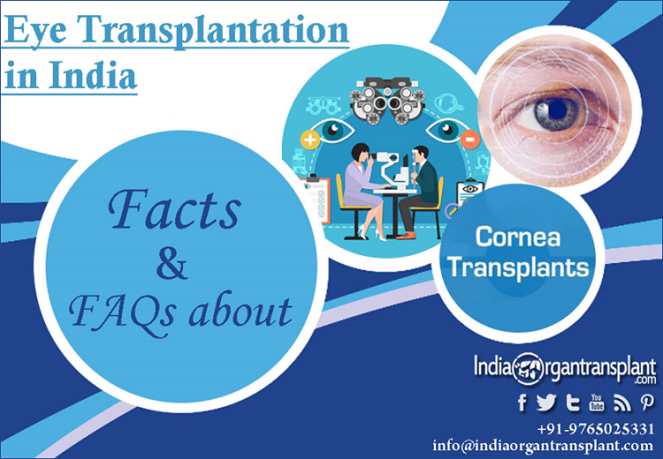
The top reasons for a cornea transplant are:
- A cornea that bulges outward (keratoconus)
- Fuchs’ dystrophy- a Hereditary condition Trichiasis – a condition in which eyelashes turn inward and cause friction against the eye surface that may result in scarring and loss of vision
- Thinning of the cornea
- Cornea scarring, caused by infection or injury
- Clouding of the cornea
- Swelling or edema of the cornea
- Corneal ulcers, including those caused by infection
- Scarring caused due to infections like eye herpes or Fungal Keratitis
- Complications caused by previous Cataract surgery
- Graft rejection following a previous Corneal Transplant
- Cornea damage due to chemical burn
- Damage caused by Lasik surgery
In addition a weakened immune system or immunocompromised patients due to HIV infection, immunosuppressive medications like steroids, cancers of the blood, such as leukemia any also lead to corneal damage necessitating Cornea transplantation.
Cornea damage caused due to contact lenses, disease, Injury or trauma resulting from impact may also warrant Cornea transplantation.
Cost of an eye transplant in India is depends on
An eye transplant cost in India depends upon various factors like:
- Doctors reputation and experience
- Hospital Type
- Surgical procedure
- Room category
- Hospital stay duration
- Any other treatment in conjunction with Eye transplant
Despite best surgery, eye transplant cost in India is far too less than the cost in Western or advanced countries and hence highly affordable.
Recovery time after the eye transplant
More often than not, an eye transplant takes about a year for full recovery. Recovery following an eye transplant depends upon how you care for your eye.
For faster recovery, it is important to:
- Wear glasses or sun glasses to avoid sunlight
- Put a shield over the eye
- Avoid touching or rubbing anywhere near the eye
- Avoid putting any pressure on the eye till your eye gets used to its new cornea
- Prevent smoke or dust from entering into the eyes.
Gradually, as your vision improves, you will be able to return to your normal daily activities.
For the initial few weeks, you will be prohibited for heavy exercise and lifting. However, depending on your job and how quickly your vision improves, you may return to work in a week or so after surgery, In order to help control infection, discomfort and swelling, you will be prescribed steroid eye drops for several months to help your body accept the new corneal graft. You will be advised by your eye surgeon to strictly and always adhere to the instructions to expedite healing and help minimize corneal transplant complications. Most patients, after a successful Corneal transplants, report good vision for many years.
Top eye transplant hospital in India
There are a large number of good hospitals for an eye transplant in India.
However, list of some of the top Eye transplant hospital in India includes:
- Fortis Hospitals, Delhi

- Apollo Hospital, Delhi

- Max Healthcare Hospital, Delhi

- BLK Super Specialty Hospital, Delhi

- Artemis Hospital, Gurgaon

- Shroff Eye Hospital, Mumbai

- Shankar Netralaya – Chennai

- V.Prasad Eye Hospital – Hyderabad

How India Organ Transplant group help international patients?
India Organ Transplant Group offers all types of assistance to International patients which include:
- Best Treatment
— Through highly qualified and experienced doctors
— In world-class hospital, fully equipped with most modern technologies
- Assistance in Visa procurement
- Pick and Drop facilities
- Arranging priority appointments with doctors
- Prompt treatment i.e. without any waiting list
- Boarding and lodging arrangement for persons accompanying the patients
- Local travel arrangements
- Currency exchange

